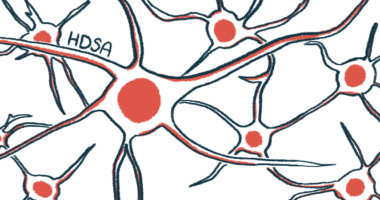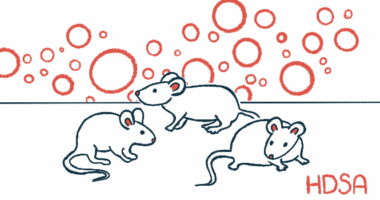2 Scientists Honored for Work in Huntington’s Disease, Treatments
Hereditary Disease Foundation to award 2022 Gehry and Wexler prizes on Nov. 10

The Hereditary Disease Foundation (HDF) is recognizing two scientists, Steven Finkbeiner and Natalia Barbosa, for their leadership in Huntington’s disease research.
Both will speak at the organization’s 2022 Virtual Gala, set for Nov. 10 starting at 7 p.m. ET. The free, hourlong event will cover the latest in Huntington’s investigations and offer an opportunity for attendees to question participating scientists. Go here to register.
Awards going to Finkbeiner and Barbosa honor their efforts in advancing ways of treating the neurodegenerative disorder. While approved therapies can help to manage Huntington’s symptoms, none work to halt disease progression.
Researchers focused on understanding Huntington’s processes
“Research to find treatments and cures for Huntington’s disease is giving hope to families around the world who are impacted by this devastating disorder,” said Meghan Donaldson, the foundation’s CEO, in a press release. “We celebrate Steven Finkbeiner and Natalia Barbosa for their extraordinary work and commitment to scientific exploration that is leading to discoveries.”
Finkbeiner, MD, PhD, director of the Taube/Koret Center for Neurodegenerative Disease Research at the Gladstone Institutes and a neurology and physiology professor at the University of California, San Francisco, is the 2022 winner of the foundation’s Leslie Gehry Prize for Innovation in Science for his work in developing helpful technologies.
The prize, named in memory of the daughter of founding HDF director Frank Gehry, is presented annually to a scientist whose “originality, spontaneity, precision, and rigor” have furthered the search for treatments and cures for Huntington’s and other brain disorders, according to the organization.
Finkbeiner, who is focused on translating research into therapeutics, has studied Huntington’s for more than 25 years. He is best known for inventing a robotic imaging device that helps to capture the life of brain cells and the processes that lead to their death in Huntington’s.
Finkbeiner recently developed a robotic microscopy pipeline that includes computer vision models trained to precisely annotate neuronal degeneration. He also established the Taube-Koret Center at Gladstone to speed treatment development.
Barbosa, PhD, a postdoctoral fellow at Stanford University, is being awarded the foundation’s 2022 Nancy S. Wexler Young Investigator Prize for work that could lead to creation of new strategies for Huntington’s therapy development.
The Wexler Prize honors the “pioneering spirit, relentless dedication, and enduring optimism” of Wexler, the HDF’s president. It is presented each year to an early-career scientist whose work “reflects the highest caliber of excellence, diligence, and creative thinking,” the release stated.
Barbosa was specifically awarded for work that the HDF described as a “stunning example of selecting the right model system to answer a scientific line of inquiry effectively and efficiently.”
In investigating crucial disease connections, she is using baker’s yeast to understand the potential role of mitochondria in the formation of protein clumps in Huntington’s that ultimately lead to cell death and disease symptoms. “Understanding the connections between mitochondria and protein clumping may change the way we think about Huntington’s disease, potentially opening up new strategies for effective therapeutic interventions,” the organization said.
The Heritage Disease Foundation supports research aiming to cure Huntington’s disease.







